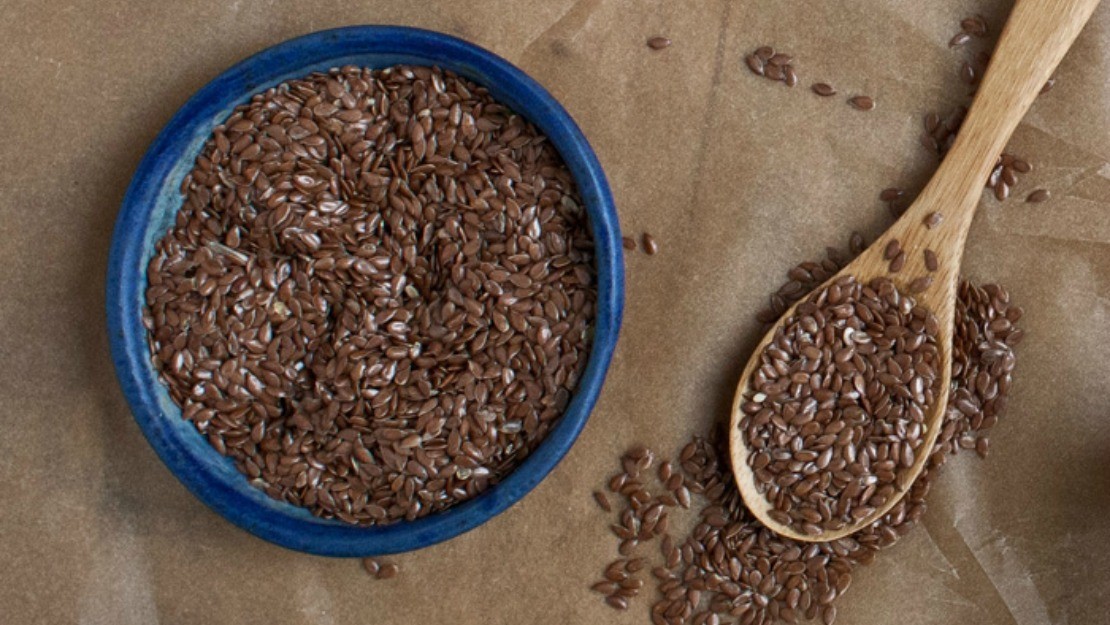
The Small But Mighty Flaxseed (+ Flaxseed Smoothie Recipe!)
About 20 years ago I became very familiar with flax (Linum usitatissimum), both the seed and cold pressed oil. I had recently adopted the Yeast Connection Diet under the care of a doctor who used alternative practices in his approach to treating traditional ailments. In my case, recurring migraines were coming on all too often, and as a young mother with two small children I couldn’t afford to be down and out. Traditional approaches were not working. Although the Yeast Connection Diet was a tough one for the first few days, I began to feel alive, energetic, and began to sleep well. I used cold pressed flaxseed oil alternatively with cold pressed extra virgin olive oil for the two-week duration of the diet and eliminated processed foods, sugar, dairy, and bread.
This was actually the first time I’d ever heard of the term “cold pressed,” let alone the existence of flaxseed and flaxseed oil. In just a short time this diet restored balance to my digestive system, which was fragile and out of whack due to many food sensitivities that were causing the migraines. I became aware of the dangers of low fat and no fat diets that were popular at the time and how important it is to consume good fats daily. Working the essential omega-3 fats such as flaxseed back into my diet and taking out processed foods helped my digestive system, eliminated the joint pain in my hip, and put an end to the migraines.
The history of the use of flaxseed dates back to 3000 BCE, when Emperor Charlemagne of Babylon believed in its health benefits and thus required his empire to consume it in their daily diets. Today, evidence shows that it may be beneficial in preventing heart disease, certain cancers, and diabetes.
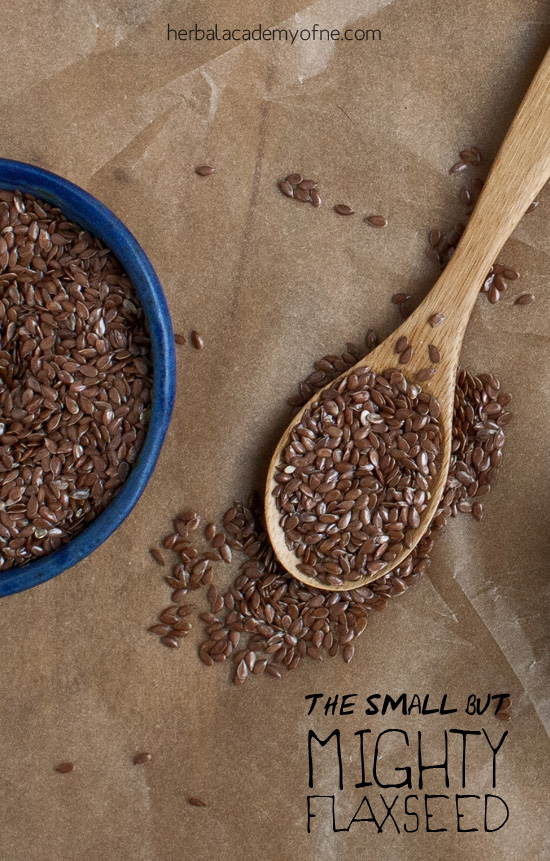
Key Components of Flaxseed
• It is rich in alpha-linolenic acids (ALA), an omega-3 fatty acid and polyunsaturated fat which is anti-inflammatory. Fifty percent of the fats in flaxseed are ALAs, 5 times more than in walnut oil.
• It is one of the best sources of lignans, a plant phytochemical. The lignans found in flaxseed are high in phytoestrogens and contain many antioxidants.
• It is a good source of soluble and insoluble fiber.
• It is high in calcium, selenium, potassium, zinc, iron, copper, B vitamins, magnesium, and manganese.
Five Reasons To Use Flaxseed
The Cardiovascular System
When taken regularly, the ALAs in flaxseed may prevent hardening of the arteries and lower cholesterol levels and blood pressure. The lignans present in flaxseed are known to reduce atherosclerotic plaque build-up and show modest improvement in lowering blood sugar levels.
The Digestive System
The ALAs and the plant fibers help to relieve constipation and inflammatory bowel diseases, which improves and balances the function of the digestive system.
Inflammation
The omega-3 fatty acids in flaxseed can calm inflammation in the joints. Flaxseed can play a role in men’s health by preventing inflammation of the prostate during the aging process.
Cancer
Flaxseed lignans may interfere with the growth and spread of cancer tumor cells specifically in the breast, colon, and prostate as well as block the enzymes involved with hormone metabolism. Flaxseed does not appear to interfere with the drug Tamoxifin for breast cancer patients, according to WebMD.
Other
Flaxseed can help calm skin inflammations such as eczema, psoriasis, acne, and rosacea, and may also promote healthy hair and nail growth. It is also being studied in regards for its potential ability to relieve menopausal symptoms.
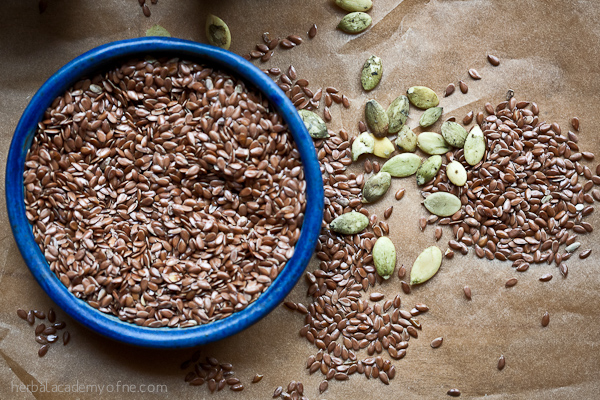
Whole or Ground?
One tablespoon of ground flaxseed each day is sufficient and so easy to include in your diet. Ground flaxseed is digested better than whole flaxseed, and is best used freshly ground because ground flaxseed oxidizes as it ages, leading to rancidity. Grind whole flaxseeds at home in small batches, and if you grind more than needed, store the excess in the refrigerator. Whole flaxseed can be stored in either the refrigerator or the freezer.
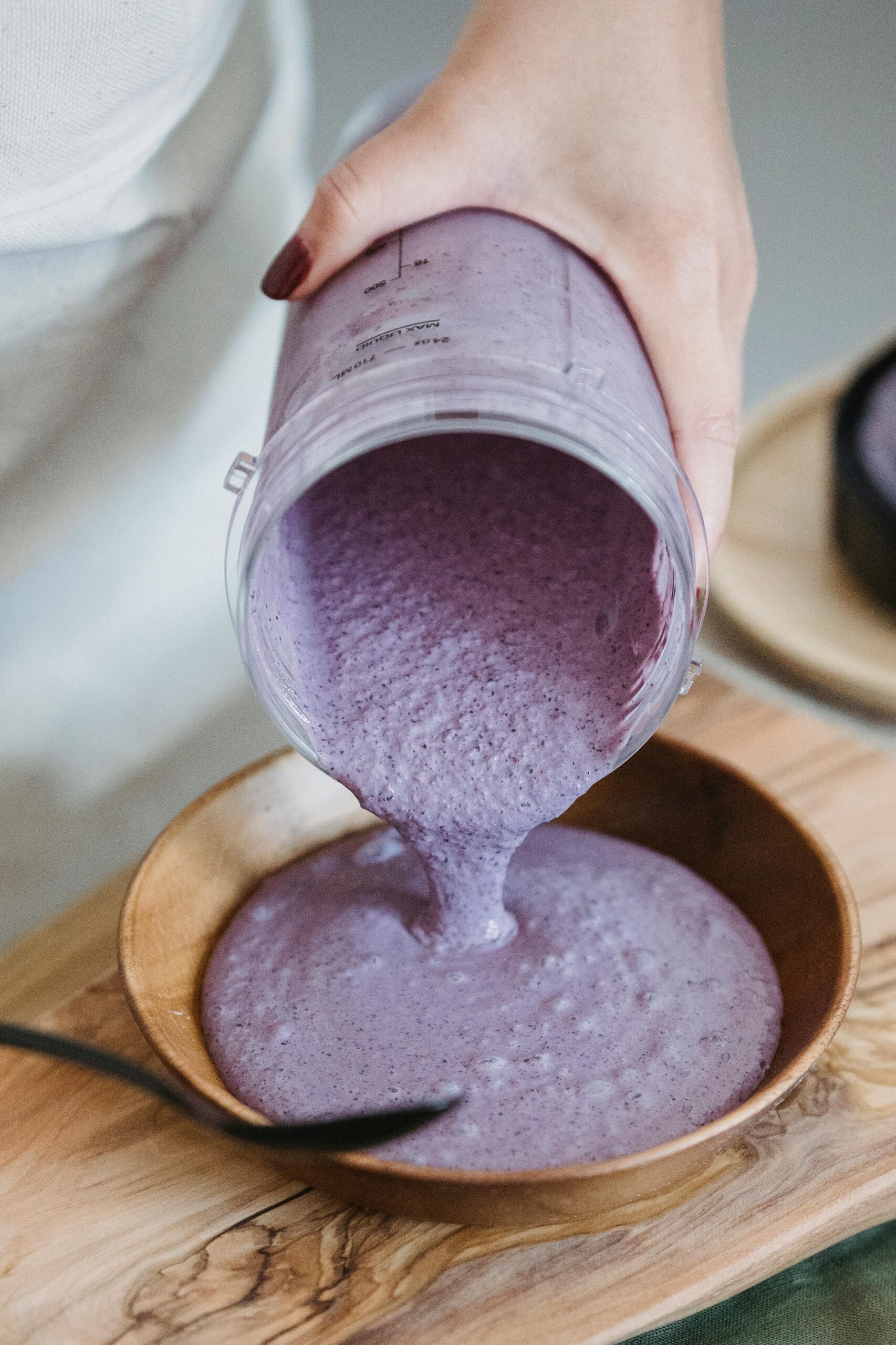
Flaxseed Smoothie
Makes two servings.
2 cups of blueberries
1 cup of plain whole milk or non-dairy yogurt
½ cup of almond or rice milk
2 tablespoons of whole flaxseed
honey to taste (optional)
- Place all the ingredients in a blender and process until smooth.
This article was written by Donna Onacki, who has been working with herbs for most of her life and is a Clinical Herbal Apprentice and Certified in Aromatherapy. She has taught many workshops on aromatherapy and enjoys sharing what she knows and has learned with others. Donna is the treasurer for the Herbal Community of Central Massachusetts and is a Financial Recovery Counselor and Coach at Pot of Gold.
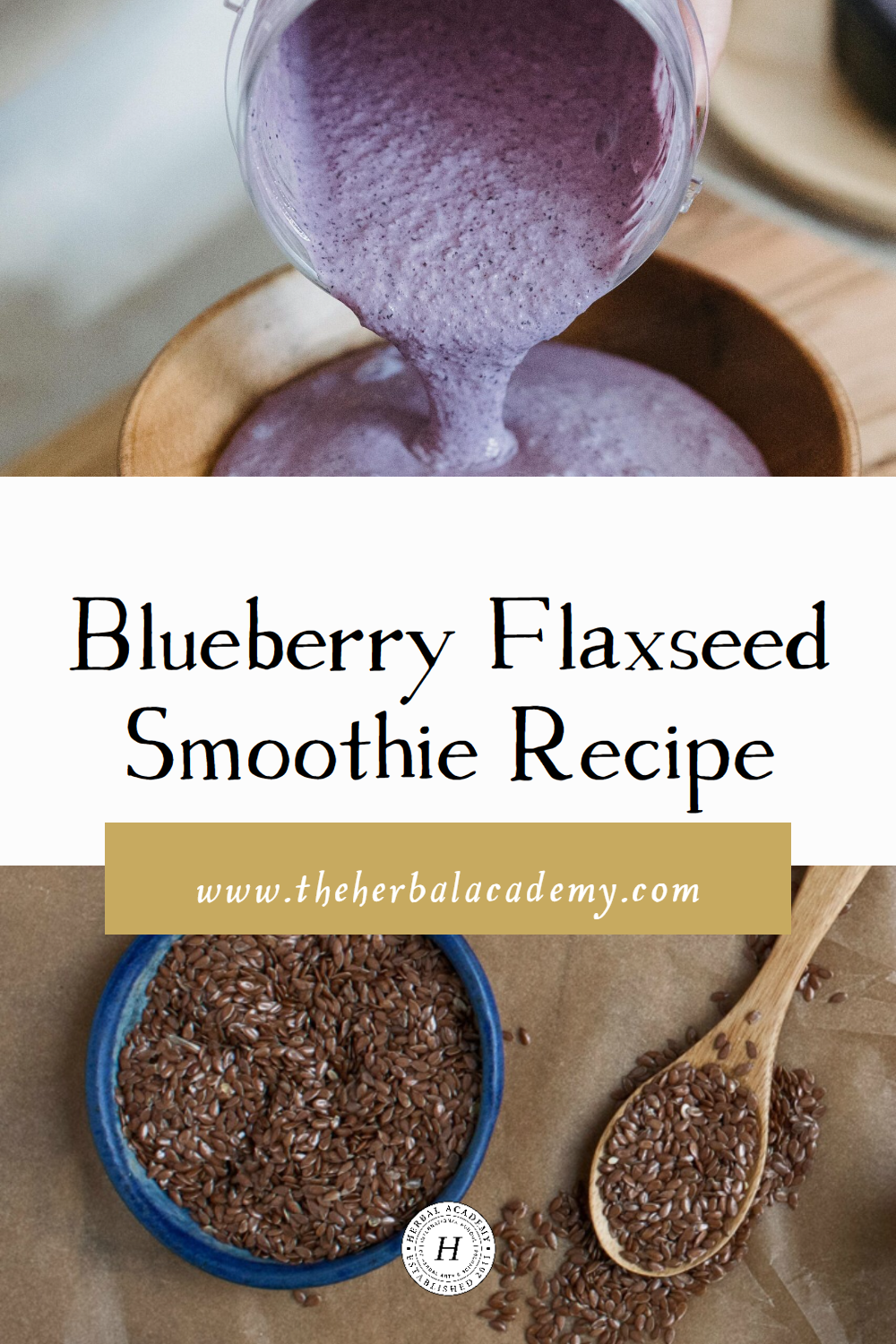
REFERENCES
Caligiuri SP, Aukema HM, Ravandi A, Guzman R, Dibrov E, Pierce GN. (2014). Flaxseed consumption reduces blood pressure in patients with hypertension by altering circulating oxylipins via an ?-linolenic acid-induced inhibition of soluble epoxide hydrolase. Hypertension. 2014 Jul;64(1):53-9.
Flaxseed Oil Benefits. (2014, January 1). Herbwisdom. Retrieved October 27, 2014 from
http://www.herbwisdom.com/herb-flaxseed-oil.html
Fukumitsu S, Aida K, Shimizu H, Toyoda K. (2010). Flaxseed lignan lowers blood cholesterol and decreases liver disease risk factors in moderately hypercholesterolemic men. Nutr Res. 2010 Jul;30(7):441-6.
McCann SE, Hootman KC, Weaver AM, Thompson LU, Morrison C, Hwang H, Edge SB, Ambrosone CB, Horvath PJ, Kulkarni SA. (2012). Dietary intakes of total and specific lignans are associated with clinical breast tumor characteristics. J Nutr. 2012 Jan;142(1):91-8.
McGee, MPH, RD, E. (n.d.). The Benefits of Flaxseed. Retrieved October 15, 2014, from http://www.webmd.com/diet/features/benefits-of-flaxseed
Orenstein, B. (2014, January 1). Tiny Flaxseed Has Big Benefits. Retrieved October 15, 2014, from http://www.everydayhealth.com/diet-nutrition/tiny-flaxseed-has-big-benefits.aspx
Sammartino A, Tommaselli GA, Gargano V, di Carlo C, Attianese W, Nappi C.(2006). Short-term effects of a combination of isoflavones, lignans and Cimicifuga racemosa on climacteric-related symptoms in postmenopausal women: a double-blind, randomized, placebo-controlled trial. Gynecol Endocrinol. 2006;22(11):646-650.
Thompson LU, Chen JM, Li T, Strasser-Weippl K, Goss PE. (2005). Dietary flaxseed alters tumor biological markers in postmenopausal breast cancer. Clin Cancer Res. 2005 May 15;11(10):3828-35.
USDA National Nutrient Database for Standard Reference. (n.d.). Seeds, flaxseeds. Retrieved October 2014 from http://ndb.nal.usda.gov/ndb/foods/show/3745
Velentzis LS, Cantwell MM, Cardwell C, Keshtgar MR, Leathem AJ, Woodside JV. (2009). Lignans and breast cancer risk in pre- and post-menopausal women: meta-analyses of observational studies. Br J Cancer. 2009 May 5;100(9):1492-1498.







